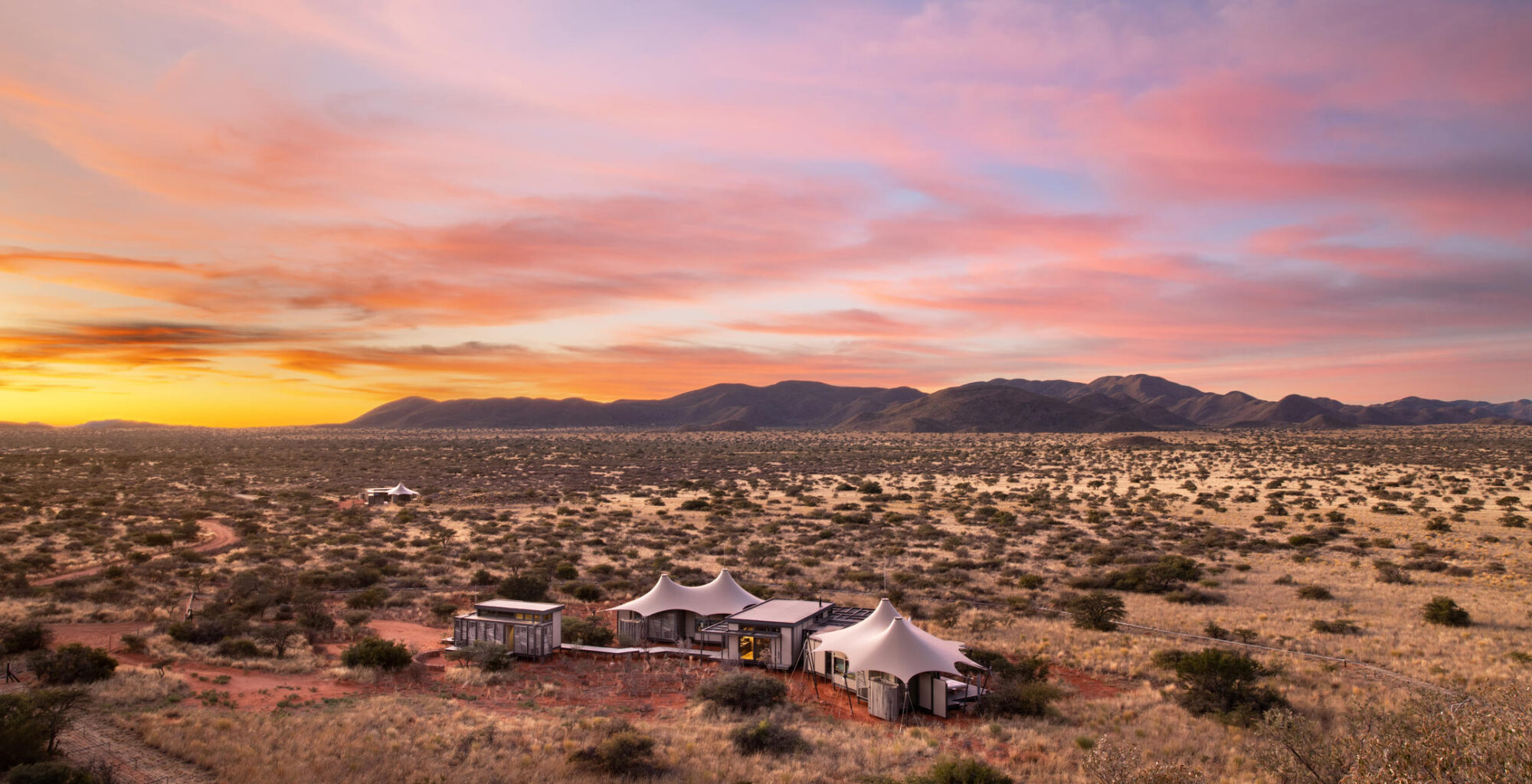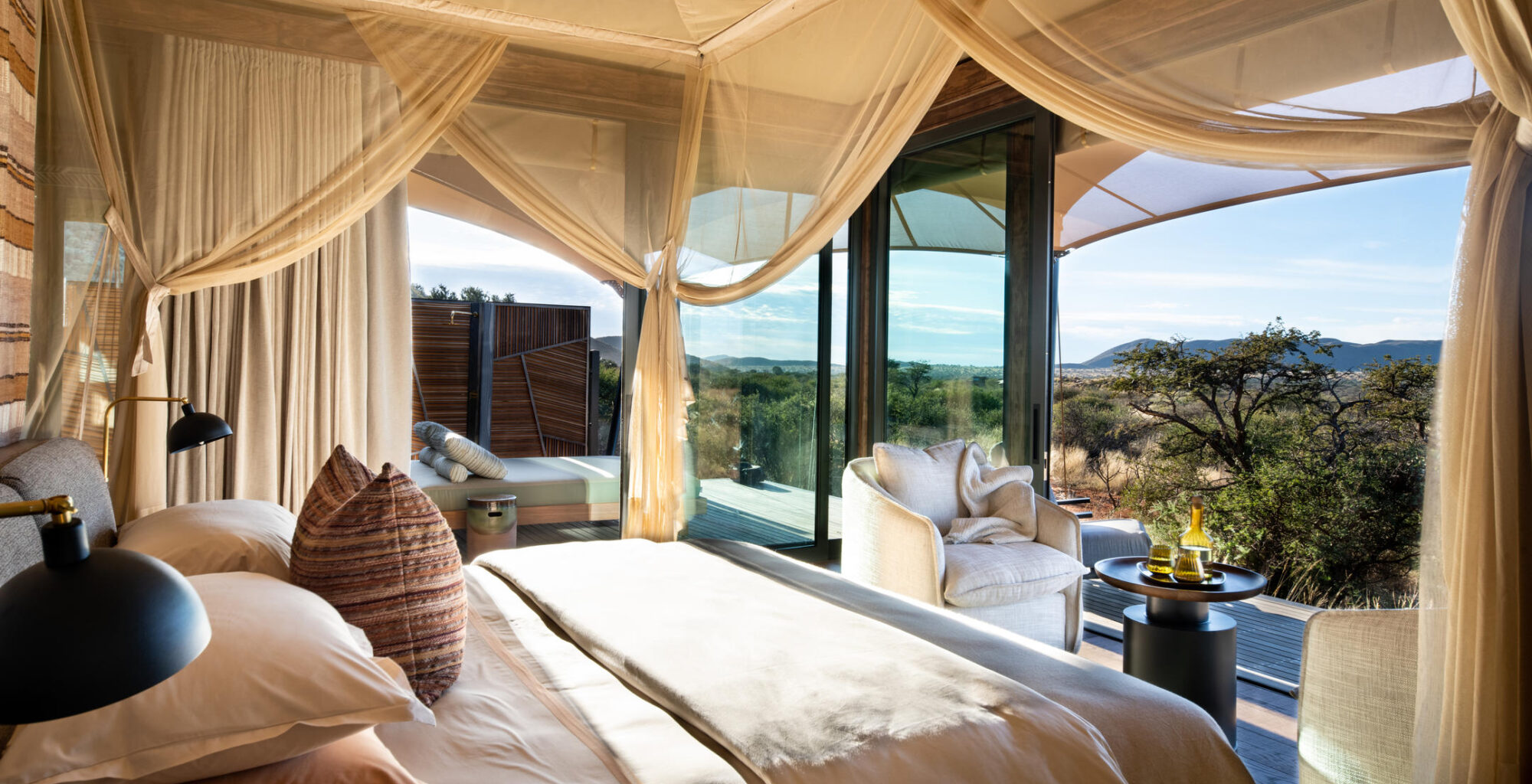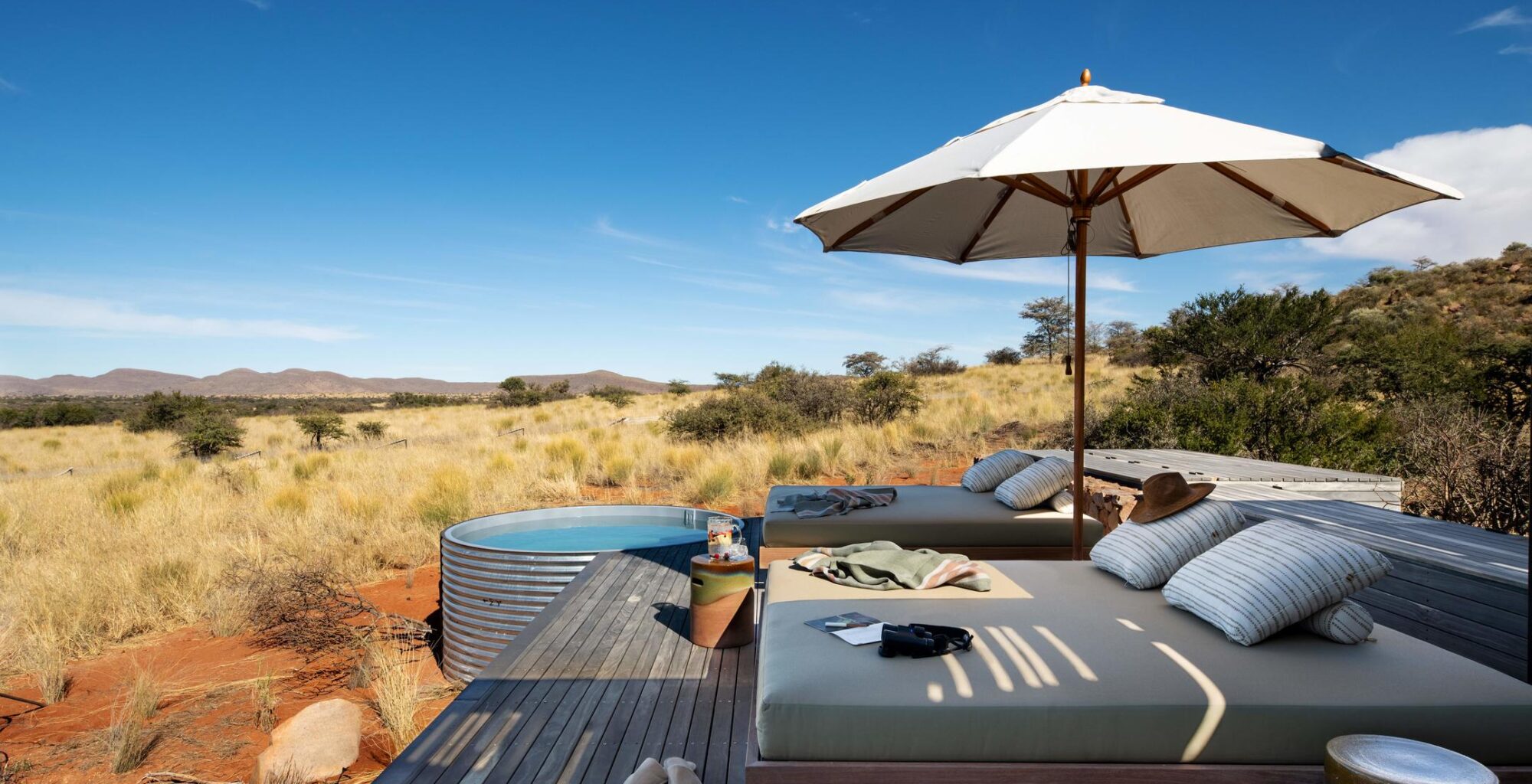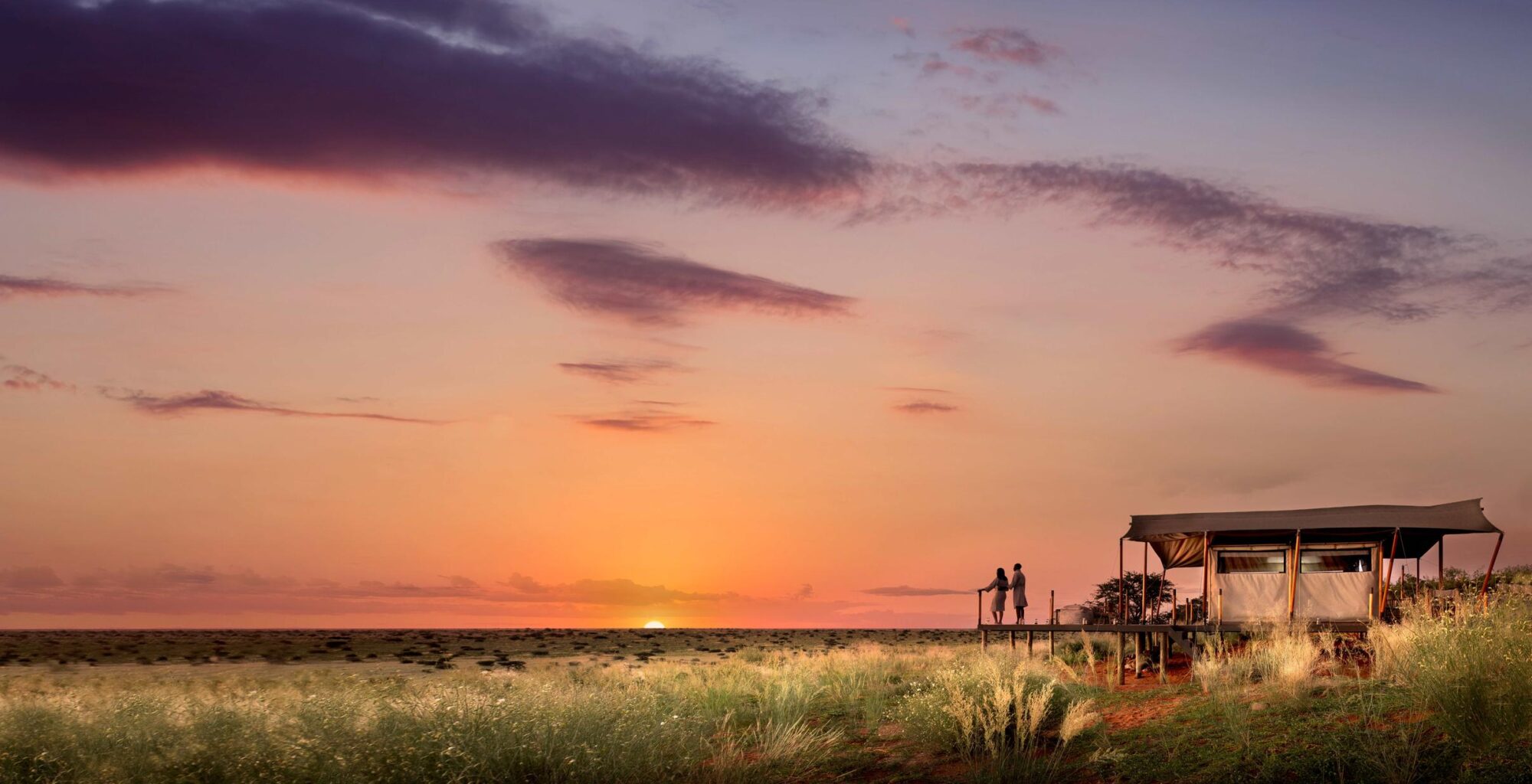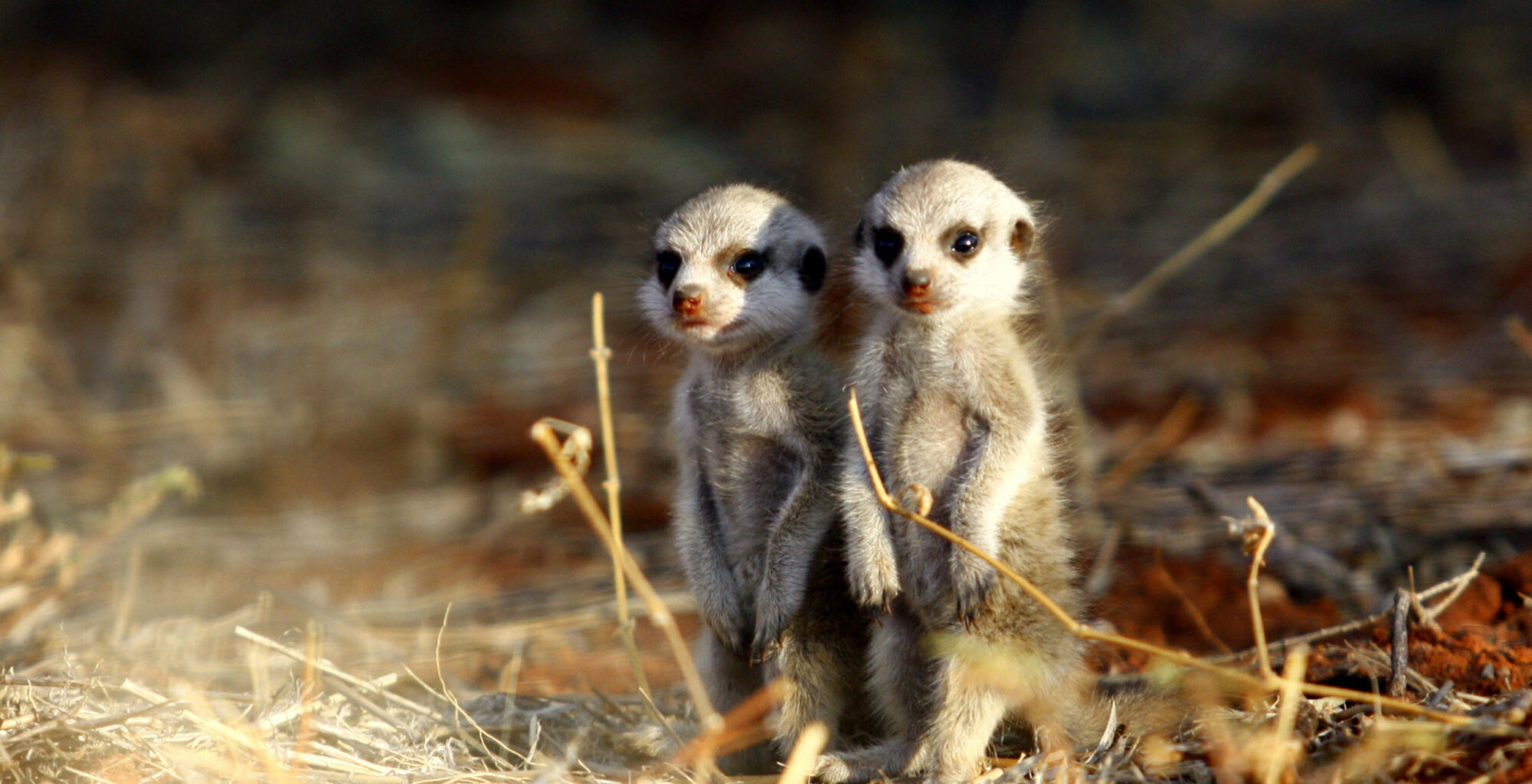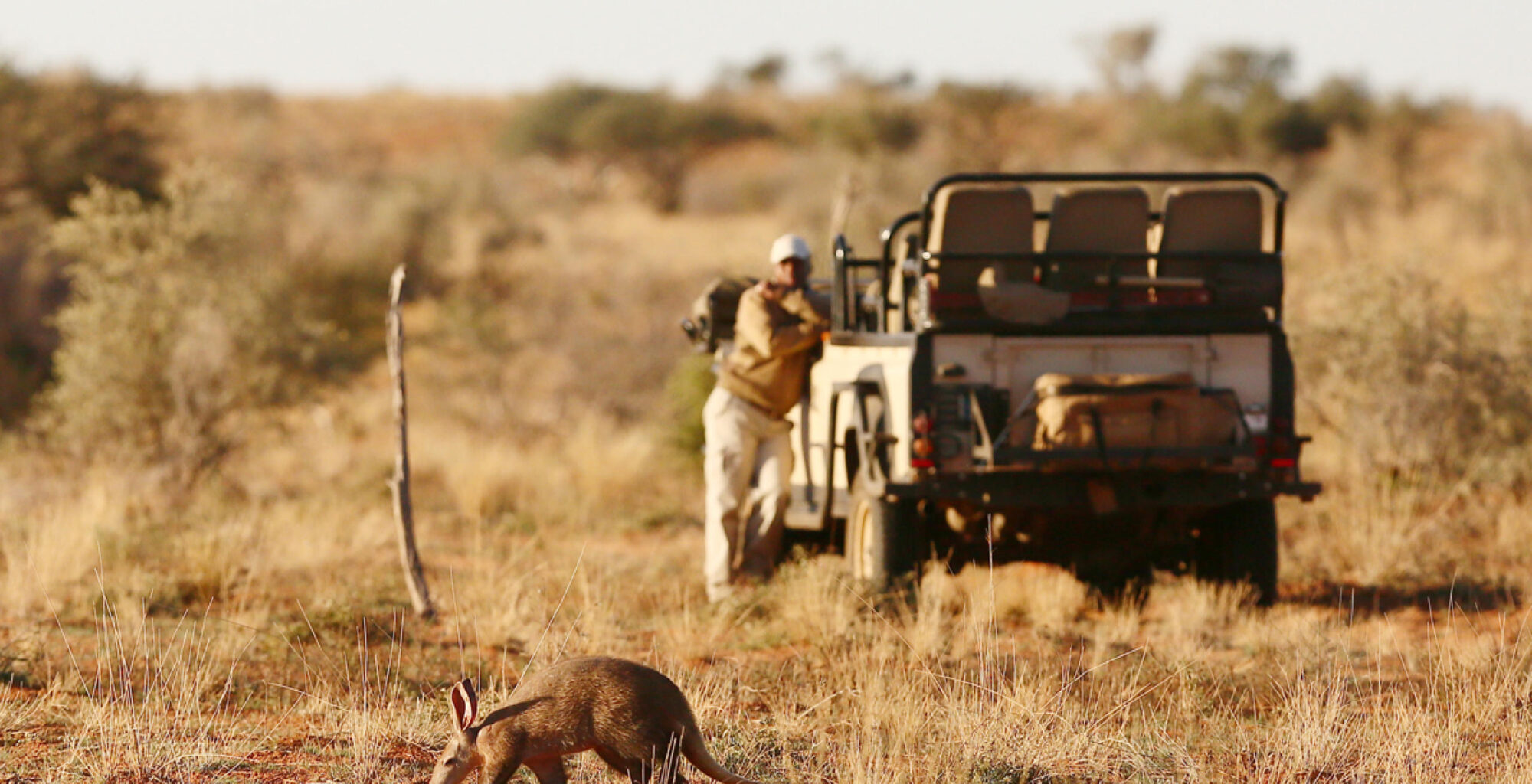Loapi is a collection of luxury tented homes in the southern Kalahari, on South Africa’s largest privately-owned reserve. It is the most recent addition to the Tswalu portfolio, joining well established sister-camps the Motse and Tarkuni Homestead.
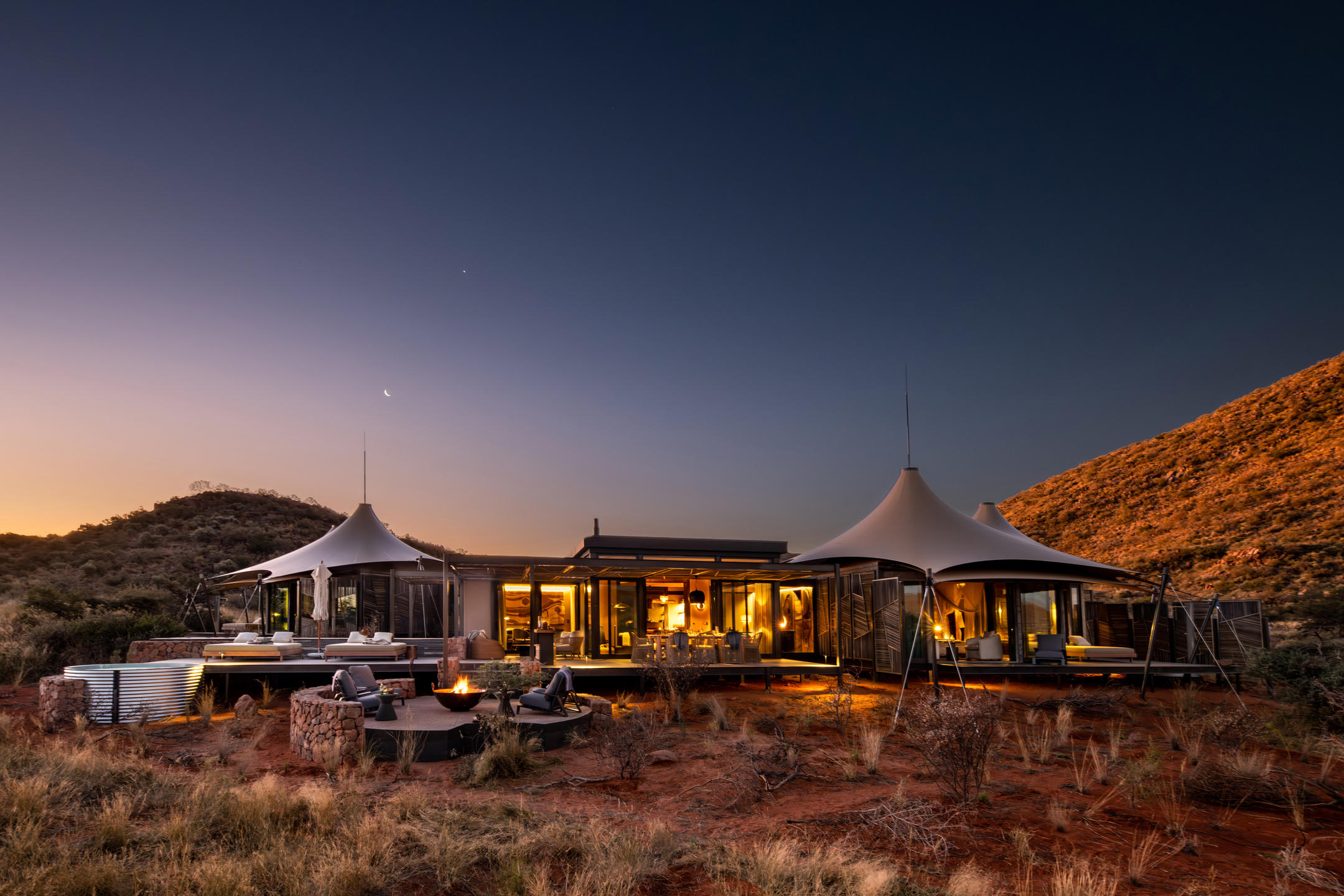
Overview
Loapi comprises six 1- or 2-bedroom private safari homes looking out across savannah with the Korannaberg mountains visible in the distance. Each is a fully self-sufficient mini-camp with at least 50m between it and its closest neighbours, and includes a private house manager, chef, guide, tracker and safari vehicle. The architecture throughout combines canvas, steel, wood and glass in a way that is typical of the Tswalu aesthetic, one on which the décor follows through, with traditional crafts and art complementing marble, glass and fine linen. There is Wi-Fi in all residences.
Food & service
Each of the residences Tswalu Loapi has a dedicated chef handpicked and mentored by Jan Hendrik van der Westhuizen, who was the first South African chef to receive a Michelin star and now operates Restaurant Klein JAN in Tswalu. The seasonal menus at houses and the restaurant alike emphasise local provenance and sustainable sourcing, and are based on extensive research into the culinary heritage of the Northern Cape. While the restaurant is heavily booked in advance, guests at Tswalu’s camps are provided with a reservation as part of the package.
Rooms
Tswalu Loapi offers four 1-bedroom residences and a pair of larger 2-bedroom options. All feature a private kitchen, cloakroom, study and fully-stocked bar, as well as an expansive deck with fire-pit and plunge pool. The living and dining areas have a steel-and-glass pavilion design, while the bedrooms’ canvas roofs bring proximity to the sights and sounds of the Kalahari beyond. There are indoor and outdoor showers and shaded space outdoors for dining, and the opportunity for in-room spa treatments.
Activities
Activities available at Tswalu Loapi include: horse-rides, either to observe wildlife or for an evening at a star bed (the horses are suitable for intermediate or expert riders); trips to visit Tswalu’s habituated meerkats or the rock engravings at Steenkamp, Klipbak or Picnic Valley; and bush walks and driven safaris. Each residence comes with a dedicated guide, tracker and vehicle.
Impact
As a whole, Tswalu Kalahari Reserve was conceived as a conservation project with the goal of restoring and maintaining biodiversity and protecting the area’s natural ecological processes. A visit to any of the camps contributes to the funding of Tswalu’s conservation initiatives, and includes the opportunity to go on-site with scientists and researchers to learn more about them.
Conservation
Tswalu Kalahari Reserve is a momentous conservation project which provides vital protection for numerous endangered species of mammals, birds, reptiles and sensitive vegetation. A dedicated Research Centre – funded and run by the Tswalu Foundation – facilitates projects designed to understand the impact of climate change on species and ecosystem processes. Tswalu also supports a Tracker Academy which seeks to keep the dying art of tracking alive and ensure that tracking skills are formally recognised.
Commerce
Tswalu employs nearly 200 people, most of whom are local, and provides crucial opportunities, skills training and career development for the community.
Community
Tswalu funds a primary Health Care Centre which offers family planning, trauma, dental and ophthalmic services. It also provides preschool facilities to staff families, which allows parents to work.

